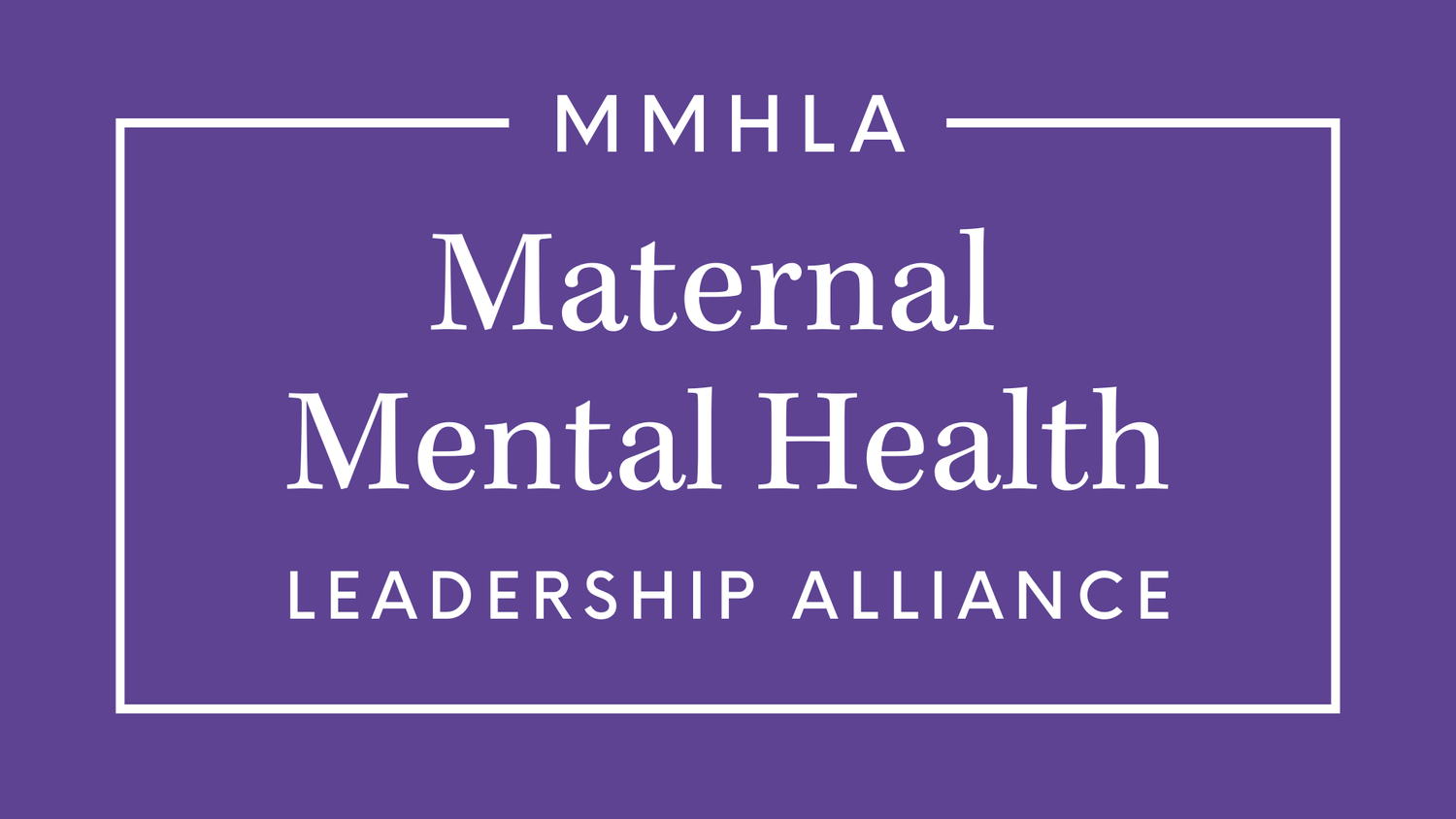Maternal Mental Health Facts & Sources
Access the Maternal Mental Health Overview Fact Sheet.
Mental Health Conditions are a Leading Cause of Maternal Deaths
Mental health conditions are a LEADING CAUSE of maternal mortality, accounting for 23% of pregnancy-related deaths. [3]
Most Women are Untreated, Increasing Risk of Negative Impacts
75% of women impacted by maternal mental health conditions REMAIN UNTREATED, increasing the risk of long-term negative impacts on mothers, babies, and families. [4]
$14 Billion: The Cost of Untreated MMH Conditions
The cost of not treating MMH conditions is $32,000 per mother-infant pair, or $14 BILLION each year in the U.S. [5]
There are a Range of Maternal Mental Health Conditions
MMH conditions can occur during pregnancy and up to one year following pregnancy. They include depression, anxiety disorders, obsessive-compulsive disorder, post-traumatic stress disorder, bipolar illness, psychosis, and substance use disorders. [6]
High-Risk Groups
Specific groups have a higher risk for maternal mental health (MMH) conditions as determined by race, ethnicity, family history of mental illness, pregnancy and birth experience, and other risk factors.
High-Risk Groups by Race and Ethnicity
Specific racial and ethnic groups have a higher risk for MMH conditions due to structural racism and discrimination, exclusion from research, barriers to accessing support, lack of culturally appropriate care, among other issues. Those impacted include but are not limited to:
American Indian and Alaska Native people [7]
Asian American and Pacific Islander people [8]
Black and African American people [9]
Hispanic and Latino/a/x people [10]
South Asian people [11]
Additional Risk Factors
The following experiences or events can also increase a woman’s risk for experiencing MMH conditions:
Sources
Fawcett, E. J., Fairbrother, N., Cox, M. L., White, I. R., & Fawcett, J. M. (2019). The Prevalence of Anxiety Disorders During Pregnancy and the Postpartum Period: A Multivariate Bayesian Meta-Analysis. The Journal of Clinical Psychiatry, 80(4). https://doi.org/10.4088/JCP.18r12527
Gavin, N. I., Gaynes, B. N., Lohr, K. N., Meltzer-Brody, S., Gartlehner, G., & Swinson, T. (2005). Perinatal Depression: A Systematic Review of Prevalence and Incidence. Obstetrics and Gynecology, 106(5 Part 1), 1071–1083. https://doi.org/10.1097/01.AOG.0000183597.31630.db
Trost SL, Busacker A, Leonard M, et al. (2024). Pregnancy-Related Deaths: Data From Maternal Mortality Review Committees in 36 U.S. States, 2017–2019. U.S. Centers for Disease Control and Prevention. https://www.cdc.gov/maternal-mortality/php/data-research/mmrc-2017-2019.html
Byatt, N., Levin, L. L., Ziedonis, D., Moore Simas, T. A., & Allison, J. (2015). Enhancing Participation in Depression Care in Outpatient Perinatal Care Settings: A Systematic Review. Obstetrics and Gynecology, 126(5), 1048–1058. https://doi.org/10.1097/AOG.0000000000001067
Luca, D. L., Margiotta, C., Staatz, C., Garlow, E., Christensen, A., & Zivin, K. (2020). Financial Toll of Untreated Perinatal Mood and Anxiety Disorders Among 2017 Births in the United States. American Journal of Public Health, 110(6), 888-896. https://doi.org/10.2105/AJPH.2020.305619
Postpartum Support International. (2023). https://www.postpartum.net/learn-more
Burns, A., DeAtley, T., & Short, S. E. (2023). The maternal health of American Indian and Alaska Native people: A scoping review. Social Science & Medicine, 317, 115584. https://doi.org/10.1016/j.socscimed.2022.115584
Du, J., & Steinberg, J. R. (2023). Stressful experiences and postpartum depressive symptoms among Asian and Pacific Islander women in the U.S.: The significance of racial discrimination. Stigma and Health, 8(1), 102–114. https://doi.org/10.1037/sah0000371
Black Women, Birthing People, and Maternal Mental Health Fact Sheet. (2023). Maternal Mental Health Leadership Alliance. https://bit.ly/blackwomen-fs
Lara-Cinisomo, S., Wood, J., & Fujimoto, E. M. (2019). A systematic review of cultural orientation and perinatal depression in Latina women: Are acculturation, Marianismo, and religiosity risks or protective factors?. Archives of Women's Mental Health, 22(5), 557–567. https://doi.org/10.1007/s00737-018-0920-4
Panchal, H. (2021). Postpartum Depression in South Asian American Mothers: An Examination of Screening Tools and Associated Cultural Factors in Assessment. Dissertations. 621. https://digitalcommons.nl.edu/cgi/viewcontent.cgi?article=1667&context=diss
Prentice, D. M., Otaibi, B. W., Stetter, C., Kunselman, A. R., & Ural, S. H. (2022). The Association Between Adverse Childhood Experiences and Postpartum Depression. Frontiers in Global Women's Health, 3, 898765. https://doi.org/10.3389/fgwh.2022.898765
Military, Veteran Women, and Maternal Mental Health Fact Sheet. (2024). Maternal Mental Health Leadership Alliance. https://bit.ly/military-fs
Birth Trauma and Maternal Mental Health Fact Sheet. (2023). Maternal Mental Health Leadership Alliance. https://bit.ly/birthtrauma-fs
Disability, Pregnancy, and Maternal Mental Health Fact Sheet. (2023). Maternal Mental Health Leadership Alliance. https://bit.ly/disability-fs
Taylor, J., Novoa, C., Hamm, K. & Phadke, S. (2019). Eliminating Racial Disparities in Maternal and Infant Mortality: A Comprehensive Policy Blueprint. Center for American Progress. https://www.americanprogress.org/article/eliminating-racial-disparities-maternal-infant-mortality/
Tahirkheli, N. N., Cherry, A. S., Tackett, A. P., McCaffree, M. A., & Gillaspy, S. R. (2014). Postpartum depression on the neonatal intensive care unit: current perspectives. International Journal of Women's Health, 6, 975–987. https://doi.org/10.2147/IJWH.S54666
Hutchens, B. F. & Kearney, J. (2020). Risk Factors for Postpartum Depression: An Umbrella Review. Journal of Midwifery & Women's Health, 65(1), 96-108. https://onlinelibrary.wiley.com/doi/10.1111/jmwh.13067
Paulson, J. L. (2020). Intimate Partner Violence and Perinatal Post-Traumatic Stress and Depression Symptoms: A Systematic Review of Findings in Longitudinal Studies. Trauma, Violence, & Abuse, 23(3), 733-747. https://doi.org/10.1177/1524838020976098
